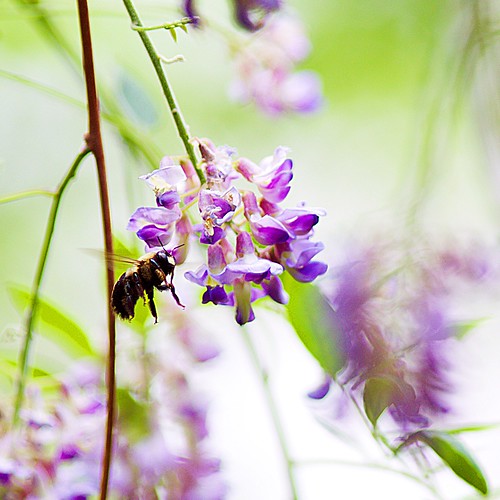Miss Felicity Bryers
No doubt about it, there were certain children one simply could
not make oneself like. Even if one is an elementary school teacher. One must maintain a professional demeanor, of course. Swallow one's irritation. Smile, always smile, even if one's facial muscles ache with the effort.
Miss Bryers inhaled deeply then let out her breath in a long, weary sigh. Every year of teaching (and there had been almost forty of them at this point), every
single year, there was at least one child who tested her patience almost beyond endurance. This year it was Edwina Baker, a loud, big-boned girl with untidy hair who slouched at her desk and scowled openly whenever Miss Bryers reminded her, ever so gently, of the importance of good grooming and correct posture. Edwina wasn't actually fat like poor Junie Bass who weighed one hundred and forty-five pounds at the age of ten. Junie, though, was quite amicable and had such a sweet dimpled smile that one could quite easily overlook her obesity.

With Edwina it was the way she flung herself about like one of those child-sized rag dolls, a grotesque, jumbo-sized Raggedy Ann. She was simply too big to romp about the way she did . If her big body had harbored a big brain, Miss Bryers might have found her more tolerable but Edwina's work was generally average or slightly above, except in math where she struggled along without bothering to hide her resentment, tapping her pencil against the metal side of her desk until she was told to stop or drumming impatiently with her feet against the floor. On one occasion she'd even dared to complain that she couldn't work the math problems without making some kind of noise. "Nonsense," Miss Bryers had declared. "Everyone else can do it," she'd said, making a sweeping gesture with her hand around the classroom. Edwina had scowled at her but kept silent.
Then there was that incident of the Friday spelling test.
"And now let's get ready for our spelling test," Miss Bryers had announced, and Edwina had shouted out "Whoopee!" in an unmistakably sarcastic tone of voice. Well, Miss Bryers had sent her out of the room to stand by herself in the hall -- a reasonable, in fact rather a mild punishment for such an open display of disrespect. When the spelling test was completed and the papers collected, she'd invited Edwina to come back to class. "You may come in now, Edwina," she'd said, and Edwina had shocked Miss Bryers right down to the soles of her shoes when she answered "No thanks, I prefer it out here in the hall."
After that, things had gone from bad to worse. Miss Bryers had called in the principal,Vera Downing, who had threatened to call Edwina father. Surely
that should have frightened the incorrigible girl but Edwina only smiled -- smirked, actually-- and gazed up at the ceiling. Miss Bryers thought that, in all her days of teaching at Foster-Merriam School for Girls, she'd never witnessed such open defiance. Too bad, she found herself thinking, too bad they outlawed corporal punishment for surely what Edwina Baker deserved was a hard paddle to her backside.
That would wipe the smirk off her face. Not that Miss Bryers condoned corporal punishment, but in certain cases such as this one....
And the worst of it all was there were still two more months to go before school let out and she need never come within ten yards of Edwina Baker again.

Edwina Baker
Seated on the bus on her way back home from school, Edwina conceded that she did feel just a little bit apprehensive. By now, the principal would have called her mother. Her father, of course, was permanently unavailable for such phone calls, something she knew but which Miss Downing and Miss Bryers did not. Anything to do with children and school was up to her mother. Her father was much too busy writing books and traveling all over the world giving lectures to be bothered with such trifles.
Edwina was no more afraid of her mother than she was of her principal and teacher and, in that respect, she differed from most of her classmates who were completely cowed by the idea of scoldings, spankings and loss of privileges. In order to excel at being bad -- and Edwina did excel at it -- you had to live inside a cold hard anger. That way the words people threw at you were like those baby marshmallows propelled by a slingshot. Even if they stuck to you, all you had to do was brush them off.

Edwina reflected that she had been angry most of her life: angry at her father for ordering her mother around like a servant, angry at her mother for letting herself be bossed around, angry at her grown-up sister who carried a list in her head of all the bad things people were always saying about Edwina. She was angry at Miss Bryers, too, or The Little Red Hen as Edwina preferred to call her. Miss Bryers was such a prim, fussy hen-like presence in the classroom, always offering advice that no one had asked for in the first place. Whenever Miss Bryers moved about the room glancing at every one's paper to see how they were doing, Edwina would mutter "pawk, pa wk, pa wk," under her breath. If one or more of her classmates overheard, they would smile ever so slightly. Though the other girls didn't like Edwina all that much because she was big and bony and they were all -- except for Junie Bass -- small and dainty at least they admired her fearlessness.
The reason Edwina was apprehensive wasn't about fear; it was about that sad look her mother always got whenever Edwina landed in trouble. Sad and confused. Like she couldn't understand how Edwina could act that way and maybe she really couldn't. In the days of her mother's childhood practically everyone did as they were told. In her mother's day, if you weren't good, you had to sit in a corner wearing a cone-shaped cap that had "dunce" written on it. You could even get beaten on the backs of your legs with a switch. These days you just got sent out of the classroom to stand in the hall which was no big deal. In fact, standing in the hall was better than sitting in the classroom which was why Edwina had refused to come back in. In the hall she could think her own thoughts, make up stories in her head, stories in which she put on armor and entered a tournament pretending to be a knight. In the end after she'd unseated every contender, she would pull off her helmet and shake out her long hair while all the spectators would gasp. Then Sir Julian, the Intrepid would ride forward on his palomino horse, dismount and, taking her hand, beg her to join his elite group called the Knights of the Burning Blade and she would gladly accept.
Edwina sighed. It wouldn't work indefinitely, of course -- standing out in the hall all day with no book to read or paper and pencil for writing and illustrating stories. If only she could make time jump forward two months. Then fifth grade would be over and she wouldn't have to be anywhere near Miss Bryers ever ever again.

 I could not count myself among the human gazelles. My obsession with confections in ample quantity resulted in my carrying more ballast than I needed. Thus, I was one of the slower ones who would inevitably be caught. I was doomed to suffer the agony of a pounding heart and exploding lungs. I went around the neighborhood dreading the prospect, yet knowing it would eventually come. I was skittery as a jackrabbit, vulnerable as a fawn in an open meadow. I lived the whole of my outdoor life in abject fear of pursuit.
I could not count myself among the human gazelles. My obsession with confections in ample quantity resulted in my carrying more ballast than I needed. Thus, I was one of the slower ones who would inevitably be caught. I was doomed to suffer the agony of a pounding heart and exploding lungs. I went around the neighborhood dreading the prospect, yet knowing it would eventually come. I was skittery as a jackrabbit, vulnerable as a fawn in an open meadow. I lived the whole of my outdoor life in abject fear of pursuit.
















 ]
]
